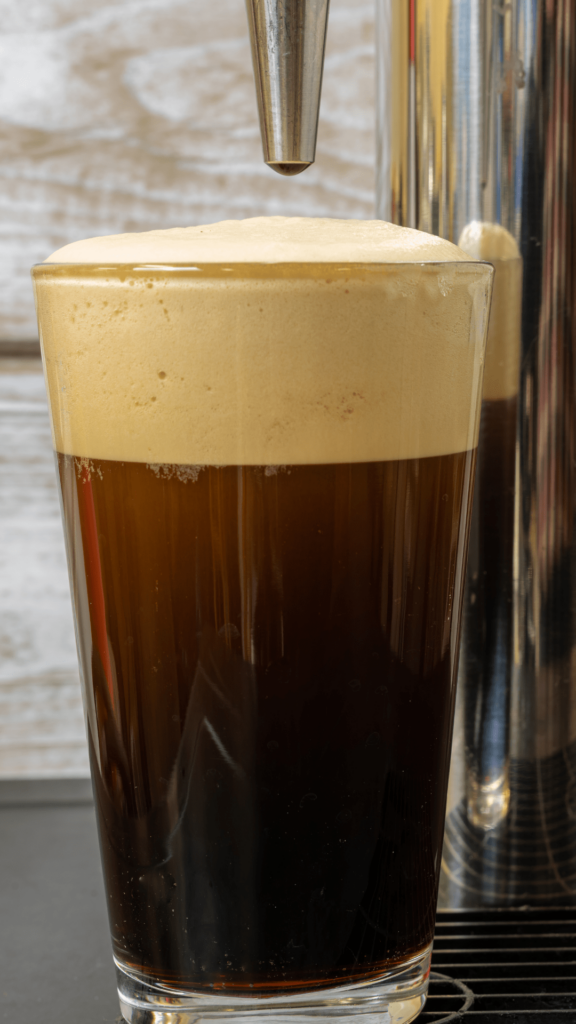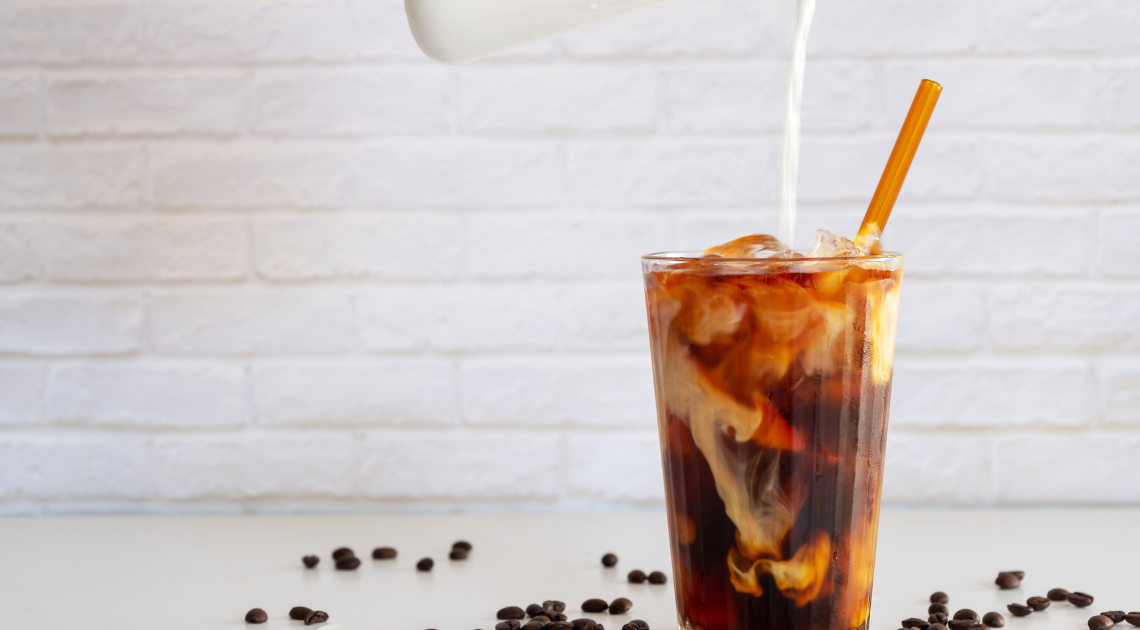Exploring Different Types of Cold Brew Coffee: Concentrate, Nitro, and more
In recent years, cold brew coffee has taken the world by storm. Its smooth and refreshing flavor has captured the hearts of coffee enthusiasts everywhere. But did you know that there are different types of cold brew coffee? From concentrated brews to nitrogen-infused delights, the world of cold brew offers a plethora of options to satisfy your coffee cravings. In this article, we will explore the various types of cold brew coffee, including concentrate, nitro, and more. So grab a cup of your favorite brew and join us on this journey!
What is Cold Brew Coffee?
Before diving into the different types of cold brew coffee, let’s first understand what cold brew actually is. Cold brew coffee is a brewing method that involves steeping coffee grounds in cold or room temperature water for an extended period, usually around 12 to 24 hours. Unlike traditional hot brewing methods that utilize heat to extract flavor quickly, cold brew relies on time to slowly extract the coffee’s flavors, resulting in a smoother and less acidic beverage.
Exploring Different Types of Cold Brew Coffee
Cold Brew Concentrate
Cold brew concentrate is a highly concentrated form of cold brew coffee. It is made by using a higher coffee-to-water ratio during the brewing process,
resulting in a stronger brew. This concentrated form allows you to dilute it with water or milk according to your taste preferences. Cold brew concentrate is ideal for those who prefer a bolder flavor profile or want to experiment with different ratios to customize their coffee experience.
Nitro Cold Brew

Nitro cold brew is a unique and visually stunning variation of cold brew coffee. It is infused with nitrogen gas, which gives it a creamy and velvety texture, similar to that of a Guinness beer. The nitrogen infusion creates tiny bubbles that cascade downwards, creating a mesmerizing visual effect. Nitro cold brew is known for its smooth mouthfeel and rich flavor, making it a favorite among coffee aficionados looking for a luxurious cold brew experience.
Flavored Cold Brew
Flavored cold brew takes the deliciousness of cold brew coffee to the next level by incorporating various flavorings. Whether it’s vanilla, caramel, hazelnut, or even seasonal flavors like pumpkin spice, flavored cold brews offer a delightful twist to the traditional cold brew. The flavors are usually added during the brewing process or mixed with the cold brew concentrate before serving. If you’re someone who enjoys experimenting with different taste combinations, flavored cold brews are a must-try.
Sparkling Cold Brew
For those seeking a refreshing and effervescent twist to their cold brew coffee, sparkling cold brew is the answer. This unique variation combines cold brew coffee with carbonated water to create a fizzy and invigorating beverage. The bubbles add a lively sensation to the smoothness of the cold brew, making it a perfect choice for hot summer days or as a delightful alternative to sugary sodas. Sparkling cold brew is gaining popularity for its bubbly charm and ability to provide a burst of energy.
Decaffeinated Cold Brew
For those who want to enjoy the rich flavors of cold brew without the caffeine kick, decaffeinated cold brew is an excellent option. The decaffeination process removes most of the caffeine from the coffee beans before brewing, resulting in a beverage that retains the smoothness and flavors of cold brew without the stimulating effects. Decaffeinated cold brew is perfect for individuals who are sensitive to caffeine or prefer to limit their intake but still want to savor the cold brew experience.
Blended Cold Brew
Blended cold brew combines the best of cold brew coffee and frozen treats, resulting in a delightful and indulgent beverage. This variation involves blending cold brew coffee with ice and other ingredients like milk, sweeteners, or even ice cream to create a thick and creamy concoction. Blended cold brews are akin to coffee milkshakes, offering a refreshing and caffeinated dessert-like experience. They can be customized with various flavors and toppings, making them a favorite among coffee enthusiasts with a sweet tooth.
Cold Brew Mocktails
Cold brew mocktails are creative and non-alcoholic alternatives that incorporate cold brew coffee into cocktail-like concoctions. These mocktails combine cold brew with various ingredients like fruit
juices, soda, syrups, and herbs to create refreshing and complex flavor profiles. From cold brew mojitos to espresso martinis, the possibilities are endless when it comes to cold brew mocktails. They provide a unique and exciting way to enjoy cold brew coffee beyond its traditional form.
Cascara Cold Brew
Cascara cold brew introduces a different twist to the cold brew experience by utilizing the dried husks of coffee cherries, known as cascara. These husks are steeped in cold water to create a brew with distinct fruity and tea-like flavors. Cascara cold brew offers a lighter and more delicate profile compared to regular cold brew coffee, making it a great option for those who prefer a less robust taste. It’s a unique way to explore the full potential of coffee cherries and discover new flavor dimensions.
Japanese-Style Cold Brew
Japanese-style cold brew, also known as Kyoto-style cold brew, is a meticulous and time-consuming brewing method that produces a smooth and concentrated cold brew. It involves a slow drip process, where cold water is gradually dripped onto a bed of coffee grounds, allowing the water to slowly pass through and extract the flavors. The result is a clean and nuanced cold brew with low acidity. Japanese-style cold brew requires special equipment and patience, but the end result is a remarkable cup of coffee worth the wait.
Iced Coffee vs. Cold Brew
The Brewing Process
Many people often confuse iced coffee with cold brew, but they are distinct in terms of the brewing process. Iced coffee is typically brewed using hot water and then cooled down by pouring it over ice or refrigerating it. The hot brewing method extracts flavors quickly, but it also brings out more acidity and bitterness in the coffee. On the other hand, cold brew coffee is made by steeping coffee grounds in cold water for a prolonged period, resulting in a smoother and less acidic brew.
Flavor and Strength
Another difference between iced coffee and cold brew lies in their flavor profiles and strength. Iced coffee tends to have a more pronounced acidity and bitterness, which some coffee enthusiasts enjoy. Cold brew, on the other hand, offers a smoother and milder taste, with less acidity and bitterness. The slow extraction process of cold brew brings out different flavor compounds, resulting in a unique and refreshing flavor profile. In terms of strength, cold brew is often perceived as stronger due to its concentrated nature, but it can be diluted to taste.
FAQs about Cold Brew Coffee
Is cold brew coffee stronger than regular coffee?
Yes, cold brew coffee is often perceived as stronger than regular hot brewed coffee. The prolonged steeping process of cold brew extracts a higher concentration of coffee compounds, resulting in a bolder and more robust flavor. However, it’s important to note that cold brew can be diluted with water or milk to achieve the desired strength according to personal preference.
Can I make cold brew coffee at home?
Absolutely! Cold brew coffee can be easily made at home with just a few simple steps. All you need is coarsely ground coffee, water, a container, and time. Simply combine the coffee grounds and water in the container, ensuring that the grounds are fully submerged, and let it steep for 12 to 24 hours. After the steeping period, strain the mixture to separate the liquid from the grounds, and voila! You have homemade cold brew coffee ready to enjoy.
How long
does cold brew coffee last? {#faq-longevity-of-cold-brew}
Cold brew coffee has a longer shelf life compared to hot brewed coffee. When stored in an airtight container in the refrigerator, cold brew can last up to two weeks without significant deterioration in taste. This makes it a convenient option for coffee lovers who prefer to prepare a larger batch in advance and enjoy it over several days.
Is cold brew coffee less acidic?
Yes, cold-brew coffee is generally less acidic than hot-brewed coffee. The extended steeping period of cold brew extracts fewer acidic compounds from the coffee grounds, resulting in a smoother and less acidic beverage. This makes cold brew a favorable choice for individuals with sensitive stomachs or acid reflux issues.
Does cold brew coffee have more caffeine?
Contrary to popular belief, cold brew coffee does not necessarily have more caffeine than hot brewed coffee. While the brewing process of cold brew extracts a higher concentration of coffee compounds, including caffeine, the final caffeine content can vary depending on factors like the coffee-to-water ratio and the brewing time. However, since cold brew is often consumed in larger quantities or diluted, it may provide a higher caffeine intake overall.
Can I heat up cold brew coffee?
Certainly! Cold brew coffee can be heated up if you prefer a warm cup of coffee instead of a cold one. Simply pour your desired amount of cold brew into a heat-safe container and warm it using methods like the microwave or stovetop. However, keep in mind that heating cold brew may alter its flavor profile slightly, so it’s best to experiment and find the temperature that suits your taste preferences.
Exploring different types of cold brew coffee opens up a world of flavors and experiences for coffee enthusiasts. From the concentrated kick of cold brew concentrate to the velvety smoothness of nitro cold brew, each variation offers a unique twist on the classic cold brew. Whether you prefer flavored cold brews, sparkling concoctions, or even tea-based cold brews, there is a type of cold brew coffee to satisfy every palate. So, go ahead and embark on your cold brew journey, trying out different types and discovering your personal favorites. Cheers to the cold brew revolution!

